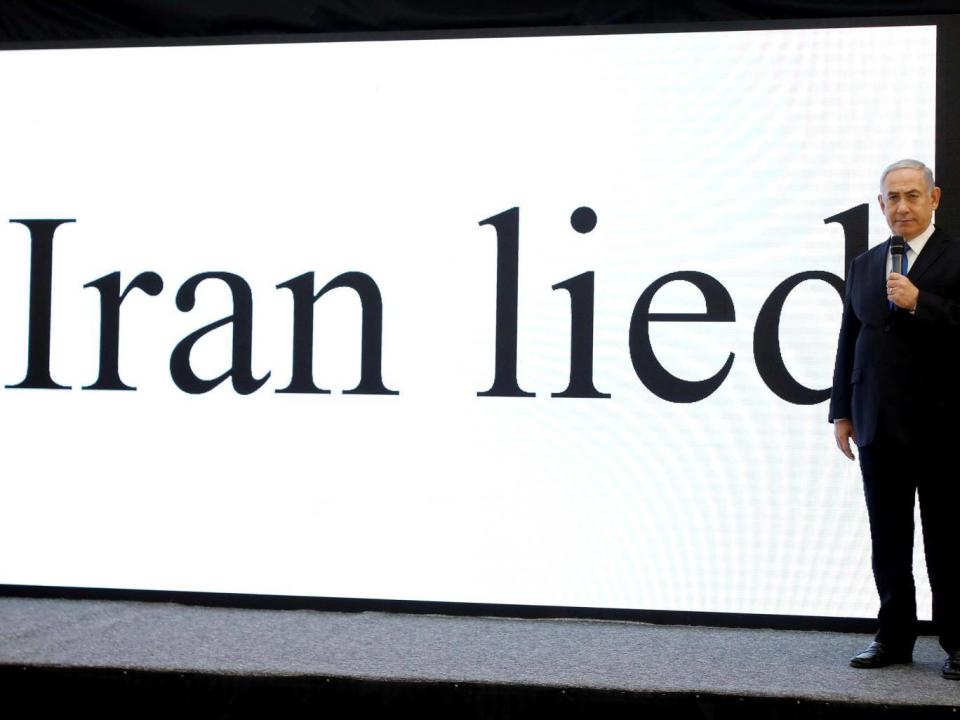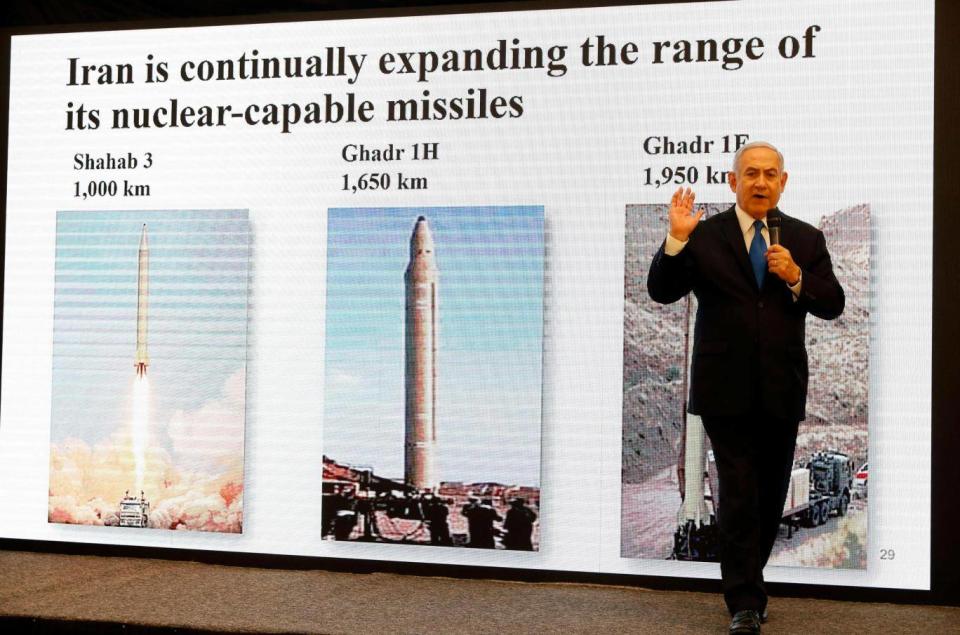Iran nuclear deal: UK backs 'vitally important' agreement despite Israel and US accusations of lying
The nuclear deal with Iran is “vitally important” to ensure the country’s atomic programme is “exclusively peaceful”, the UK has said, despite accusations from Israel and the US that the agreement has been breached.
Benjamin Netanyahu, Israel’s prime minister, unveiled what he claimed were documents which reveal Tehran covertly pursued nuclear weapons before signing a deal with world powers in 2015.
The US secretary of state, Mike Pompeo, said the information showed Iran’s leaders lied about a nuclear weapons programme known as “Project Amad”.

However, a spokesman said the British government has “never been naive about Iran and its nuclear intentions”.
Boris Johnson, the foreign secretary, said Mr Netanyahu’s speech “underlines the importance of keeping the Iran nuclear deal’s constraints on Tehran’s nuclear ambitions”.
He said: “The Iran nuclear deal is not based on trust about Iran’s intentions; rather it is based on tough verification, including measures that allow inspectors from the International Atomic Energy Agency unprecedented access to Iran’s nuclear programme.”
He added: “The fact that Iran conducted sensitive research in secret until 2003 shows why we need the intrusive inspections allowed by the Iran nuclear deal today. The verification provisions in the Iran nuclear deal would make it harder for Iran to restart any such research. That is another good reason for keeping the deal while building on it in order to take account of the legitimate concerns of the US and our other allies.”
Under the 2015 nuclear deal struck by Iran and six major powers – Britain, the United States, France, Germany, Russia and China – Tehran agreed to limit its nuclear programme in return for relief from crippling sanctions.
Donald Trump has signalled he will pull out of the agreement, which he has called “the worst deal ever”, but he faces intense pressure from his European allies to stick with it.
The US president gave Britain, France and Germany a deadline to fix what he views as the deal’s flaws – its failure to address Iran’s ballistic missile programme, the terms by which inspectors visit suspect Iranian sites, and “sunset” clauses under which some of its terms expire – by 12 May, or he will reimpose US sanctions.

On Monday, Mr Netanyahu stood in front of stacks of files representing what he said was a “half ton” of Iranian nuclear documents collected by Israeli intelligence.
“Iran lied about never having a nuclear weapons programme,” he said. “One hundred thousand secret files prove it did. Second, even after the deal, Iran continued to preserve and expand its nuclear weapons knowledge for future use.”
The White House said in a statement: “This information provides new and compelling details about Iran’s efforts to develop missile-deliverable nuclear weapons.
“These facts are consistent with what the United States has long known: Iran had a robust, clandestine nuclear weapons programme that it has tried and failed to hide from the world and from its own people.”
An earlier statement by the White House made the extraordinary claim Iran “has” a clandestine nuclear weapons programme, before it was corrected due to what it said was a clerical error.
Iran has denied ever seeking nuclear weapons and accuses Israel of stirring up world suspicions against it.
A spokesman for the country’s foreign ministry called Mr Netanyahu’s performance a “threadbare charlatanism” show.
The state-run IRNA news agency quoted the spokesman, Bahram Ghasemi, as saying Mr Netanyahu’s speech was part of “fruitless efforts of a bankrupt and scandalous liar”.
France and Germany also confirmed they will continue to back the nuclear agreement.

